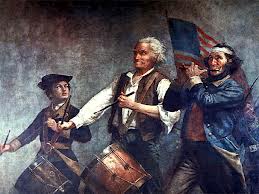This will hopefully be the first of many roundtables hosted by The Junto, in which a bunch of young whipper-snappers take aim at various topics of early American history, with the occasional response from seasoned scholars to set us straight. This particular roundtable, which will hopefully set a pattern for others to follow, includes contributions every day this week, each on a different topic related to the broader theme, and then a conclusion/response next Monday. We hope these roundtables, starting with this one on the current state of political history, will start a fruitful discussion both on the blog and elsewhere.

In 2005, Chris Beneke published an essay in Reviews in American History titled “The New, New Political History.”[1] This label did not originate with him—indeed, one of the chapters in the book he was reviewing used the same description[2]—but it was meant to capture the arguably fresh take on early American politics. The editors of Beyond the Founders, Beneke wrote, “enter a nearly decade-long discussion on the direction of political history.”[3] Was the field thriving or faltering? Well, he reasoned, it depended on how you defined the field. And after looking at this manifesto-volume, Beneke concluded that the movement was diverse, scattered, and unsystematic, yet promising. In the face of the ever-constant “founders chic,” a continuation of America’s fascination with a small group of people who allegedly embodied America’s pride and glory, this historical movement sought to widen the scope and centralize the peripheries. Sometimes, for academics, the Joseph Ellises and David McCulloughs of the world are not quite enough. Continue reading →

 Historians of early America often stereotype each other as being adverse to the use of theory. However, a closer look at the historiography of early America over the last century does not bear out that claim. In the first decades of the twentieth century, Progressives derived their materialist conception of history from Marx.[1] The Progressive interpretation held for decades until the 1960s when a group of historians based at Harvard University displaced it with an interpretation influenced by the sociological theories of anthropologist, Clifford Geertz.[2] Even though postmodernism and postcolonialism, as theories, never took a strong hold on the field, there have been early American historians who have sought to incorporate, in a general sense, their broader modes of inquiry.[3] The historiography of early America has hardly been devoid of theory over the last one hundred years.
Historians of early America often stereotype each other as being adverse to the use of theory. However, a closer look at the historiography of early America over the last century does not bear out that claim. In the first decades of the twentieth century, Progressives derived their materialist conception of history from Marx.[1] The Progressive interpretation held for decades until the 1960s when a group of historians based at Harvard University displaced it with an interpretation influenced by the sociological theories of anthropologist, Clifford Geertz.[2] Even though postmodernism and postcolonialism, as theories, never took a strong hold on the field, there have been early American historians who have sought to incorporate, in a general sense, their broader modes of inquiry.[3] The historiography of early America has hardly been devoid of theory over the last one hundred years.